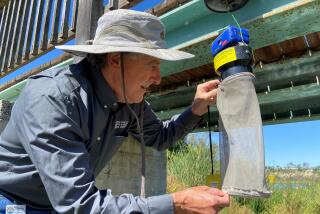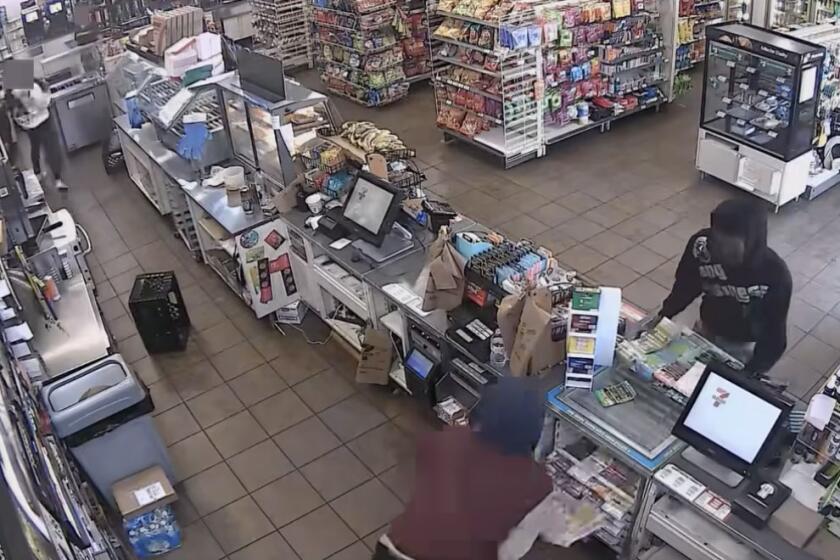California issues quarantine policy for Ebola exposure
Anyone arriving in California from an Ebola-affected area and who has had personal contact with a person infected with the deadly virus will be quarantined for 21 days, according to an order issued Wednesday by the state’s public health director.
UPDATE: State orders quarantine for workers who had contact with Ebola
The order provides a more nuanced set of guidelines to assess the risk associated with people returning from regions afflicted by an Ebola outbreak -- currently Sierra Leone, Liberia and Guinea -- than the controversial blanket quarantines in New Jersey, New York and Maine.
In California, county health officials will have the ability to screen passengers arriving from Ebola-stricken regions in West Africa, or who have worked with infected patients, to determine if they’re at risk for the disease and if they should be quarantined for the virus’ three-week incubation period.
Failure to comply with a quarantine order could result in misdemeanor criminal charges.
“This order will allow local health officers to determine, for those coming into California, who is most at risk for developing this disease, and to contain any potential spread of the disease by responding to those risks appropriately,” department director Dr. Ron Chapman said in a statement.
Anyone who arrives in California from regions where an outbreak is active, but who has not come in contact with an Ebola patient, won’t be quarantined under the guidelines, the California Department of Public Health said in announcing the mandate. Health workers will screen passengers on a case-by-case basis.
The announcement comes after strict quarantine rules mandated by East Coast governors for returning healthcare workers from West Africa are facing heavy criticism.
Kaci Hickox, the nurse who was isolated in a hospital tent for three days in New Jersey after her return from West Africa, vowed on Wednesday to defy a Maine order that she remain in quarantine while she is monitored for symptoms of Ebola.
Doctors Without Borders, for whom Hickox was working in West Africa, condemned “blanket forced quarantines” on Wednesday, calling such policies “not based upon established medical science.”
Officials there have insisted that the first priority of the quarantine protocols was protecting the health of residents of the state.
More to Read
Start your day right
Sign up for Essential California for news, features and recommendations from the L.A. Times and beyond in your inbox six days a week.
You may occasionally receive promotional content from the Los Angeles Times.







